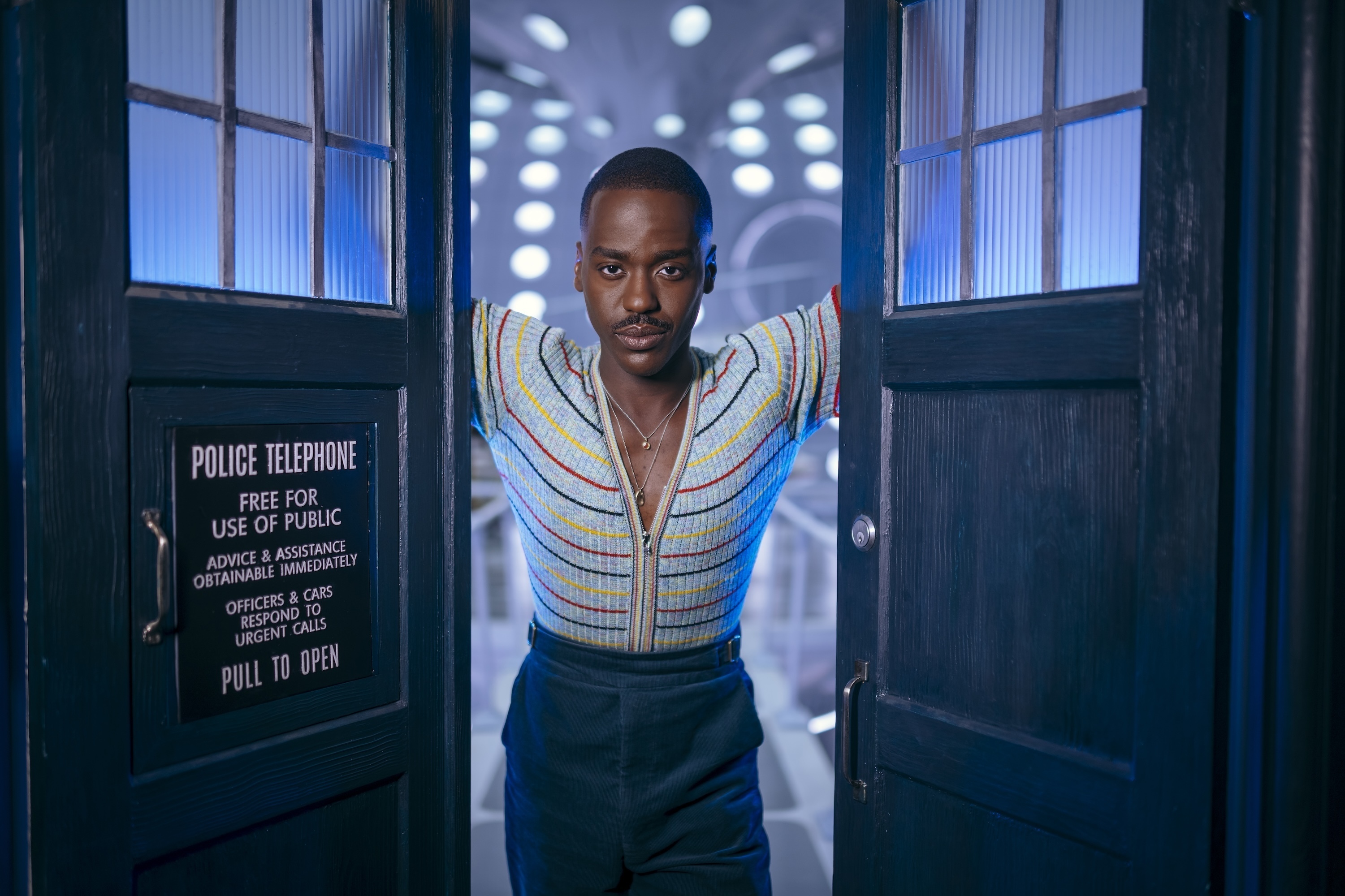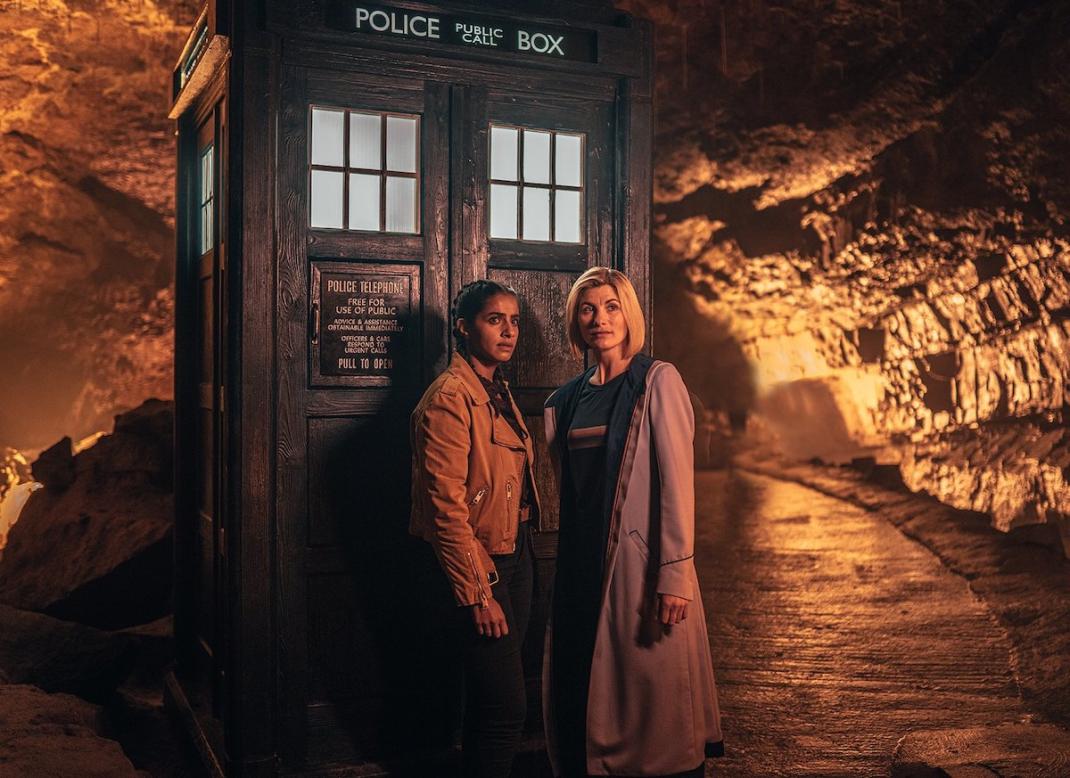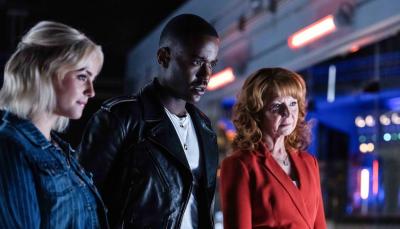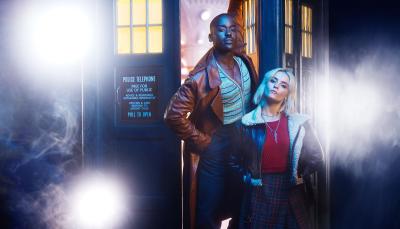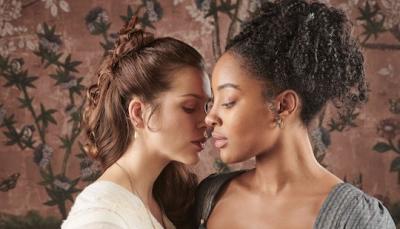'Doctor Who' Has Always Been Queer, But That Doesn’t Make This Season Any Less Revolutionary
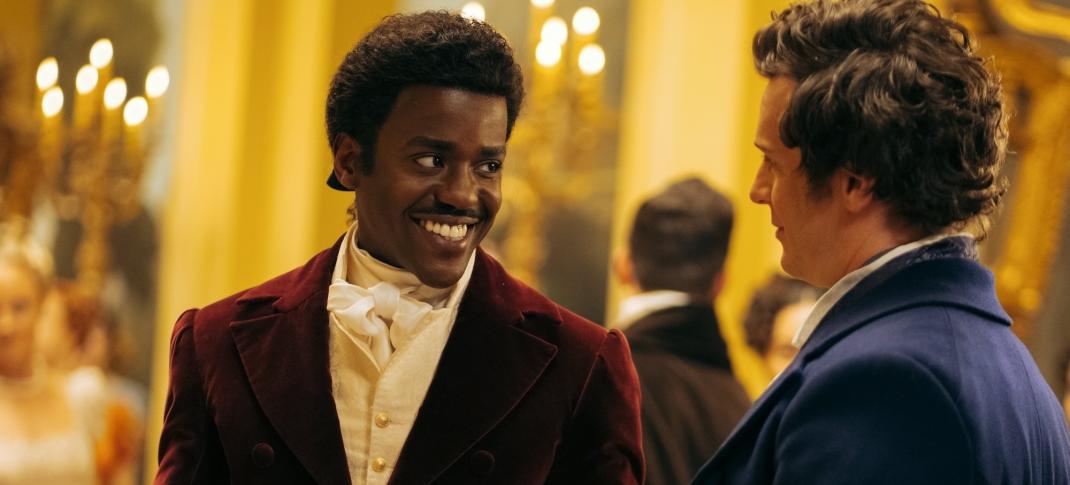
Ncuti Gatwa at the Fifteenth Doctor and Jonathan Groff as Rogue in 'Doctor Who' Season 1/14
Disney+
Doctor Who’s new reboot era has garnered buzz in cultural circles for many “firsts” in LGBTQ+ representation. So far, there’s been the first gay Doctor, the first gay kiss in Doctor Who, the first transgender actor, the first transgender character, and so on. All of these have happened, in a way, but none of them have been firsts. Depending on your interpretation of canon (and understanding of Time Lord sexuality), the Doctor has always been queer. (If you need extra proof, see the Thirteenth Doctor, who had feelings for her companion Yaz and acknowledged her literal wife on screen.) The first kiss between two men on the show happened in 2005 and has been followed by many same-sex kisses between main and side characters. The nod for the first transgender actor and character belongs to Bethany Black and her (unfortunately dreadfully written) character 474 in Season 9’s “Sleep No More.”
There’s a reason the current season has been given credit for so many firsts, though, and it’s not clickbait or lack of research. The show’s new era, with its big swings, musical numbers, and larger-than-life characters, has felt like a party. This season not only has casual queer representation, but it also celebrates queerness.
Perhaps the number one person LGBTQ+ fans have to thank for this celebration is the series showrunner, Russell T. Davies. Doctor Who has attracted a devoted LGBTQ+ fanbase since the show began in 1963, among them Davies himself. He grew up feeling a link between being gay and being a Doctor Who fan. As he told the BBC in a recent interview, “Being gay was ‘the love that dare not speak its name’ and Doctor Who shared that feature as well by that time... It was a cheap, old, mad science fiction show. You couldn’t say you fancied anyone, and who couldn’t say that you loved Doctor Who.” Davies brought that gay lens to the show when he was first showrunner from 2005 to 2010, and now he’s back to make the show bigger, bolder, and gayer than ever.
Davies gave us Doctor Who’s first gay kiss in 2005, but the show’s LGBTQ+ roots go much deeper. The show has been made by gay people behind the scenes since the beginning. The show’s first director, Waris Hussein, was a gay man, as was one of its most notable producers in the 1980s, Jonathan Nathan Turner. Though essentially born from a tight budget, the show’s camp aesthetics also speak to LGBTQ+ fans.
Despite these roots, LGBTQ+ fans have spent most of the past 60 years reading into gay subtext or creating the subtext from whole cloth. Even in the series’s revival, queerness has been quiet, chaste, palatable, and sometimes even played for laughs (Steven Moffat, I’m looking at you).
Jodie Whittaker’s Thirteenth Doctor had a queer romance storyline, but it was a blink-and-you’ll-miss-it thread and had a puzzling, anticlimactic resolution. The Thirteenth Doctor’s era was intentional in bringing more diversity in gender, race, and sexuality in front of and behind the camera, and it gave many queer female fans a new sense of belonging in the fandom. However, it left much to be desired when it came to more deeply exploring the Doctor’s gender fluidity and companion Yaz’s discovery of her queerness. So the explicitly queer themes of Ncuti Gatwa’s first season as the Fifteenth Doctor have been refreshing.
It would have been delightful enough to have Gatwa as an openly gay actor playing a gay-coded Doctor, throwing around “honey,” “babes,” and dressing fabulously. (Although, let’s be honest, that’s not new for the Doctor.) But this season took it further, especially with the episode “Rogue.” Writers Kate Herron and Briony Redman gave the Doctor a gay romance to rival all other romances seen on the show, with a swoon-inducing, sparks-fly kiss to boot. There’s a reason that after the kiss went viral, I had three different queer friends who are non-Who viewers ask to watch the episode with me. When it comes to intentional, authentic LGBTQ+ representation, it’s true that if you build it, they will come.
One of the most minor yet meaningful ways that Davies has planted his rainbow flag unequivocally is simply putting a name to LGBTQ+ identities. Rose Noble (Yasmin Finney) wields the word “nonbinary” to save the world in “The Star Beast,” and in “The Devil’s Chord” and “Boom,” characters casually reference lesbians in conversation. Previously, the word “gay” had only ever been said as a punchline on the show: Rose calls the Doctor gay when he complains about being slapped by Jackie in “Aliens of London.”
The Doctor meets two self-proclaimed “thin-fat gay married Anglican Marines” who are played for laughs in “A Good Man Goes to War.” Even if the “binary-binary-nonbinary” line is clunky and the lesbian lines are said in passing, they make an impact. In the era of “don’t say gay,” Doctor Who is saying gay on Disney+, no less, and Davies wants the universe to hear it.
The only thing missing from this season has been a celebration of other parts of the Doctor’s identity, including his race and newfound experience as an adoptee. Just as having Davies and Herron as LGBTQ+ writers brought joy and dimension to the Doctor’s queerness, bringing on Black writers and adoptee writers could do the same for the Doctor’s other identities — and the fans who share them. There is certainly room enough in the TARDIS to celebrate these parts of the Doctor hand-in-hand with his queerness. Fortunately, we have at least another season with Gatwa’s Doctor to look forward to — after the sure-to-be sensational season finale. Knowing Davies, it will only get bigger, bolder, and gayer from here.
Doctor Who Season 1(/Season 14/Season 40) is streaming with all episodes on Disney+ in the U.S. and iPlayer in the U.K. Season 2(/15/41) will be out in 2025, and Season 3(/16/42) is expected to be greenlit soon.

